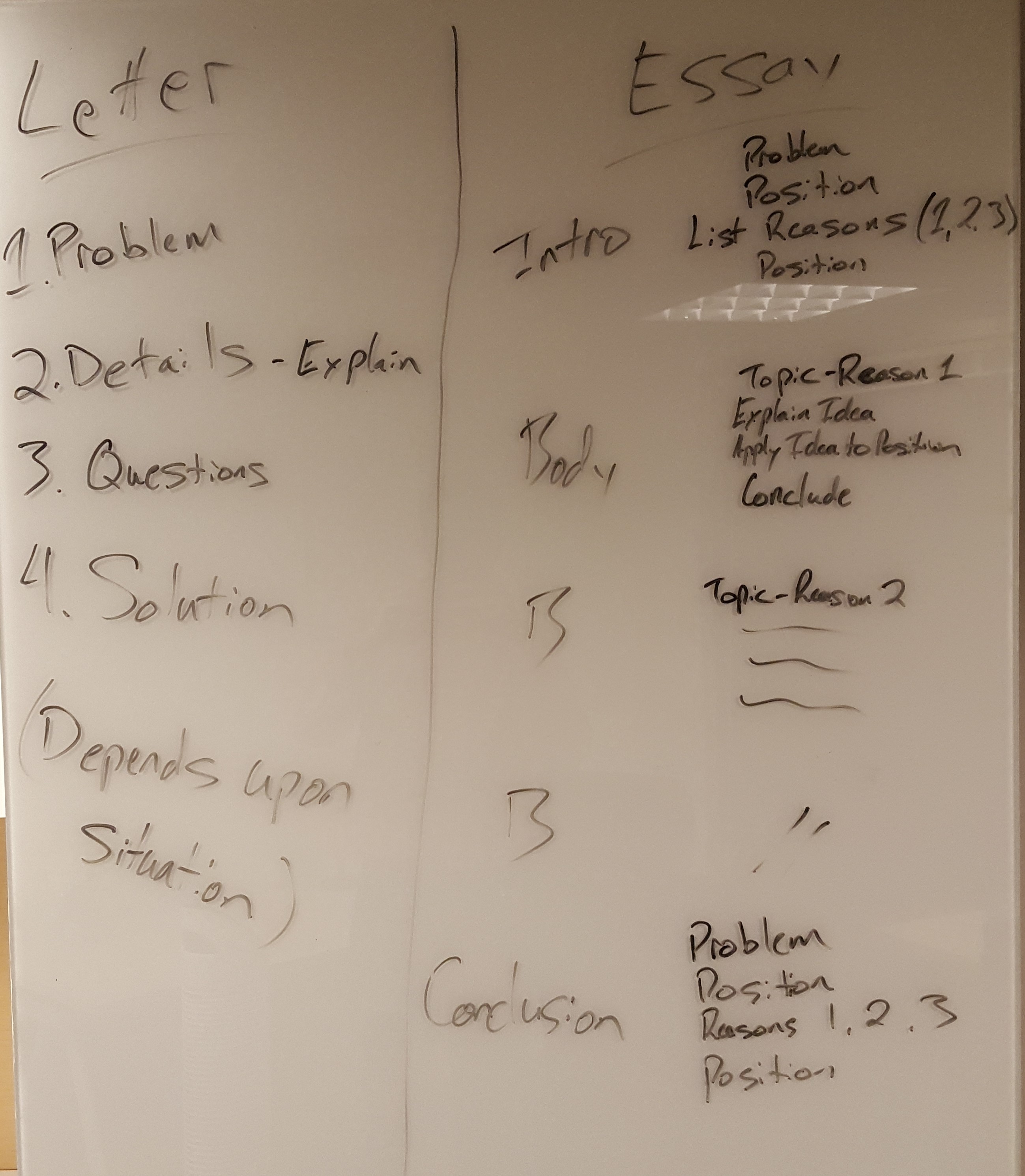Double VIP Class Notes (Nick)
Homework
Do some IELTS writing practice; perhaps submit some email services this week!
IELTS Writing Format
There will be two tasks. The immediate differences I see are these:
1. The first task is factual, and can vary in register (personal, semi-formal, formal)
— Three mandatory points
— Address the audience appropriately (register)
— TAKE ONLY 20 MINUTES, BECAUSE THIS IS ONLY 1/3 OF THE TOTAL POINTS FOR THE WRITING SECTION
2. The second is subjective; you will have to take a position on something, to discuss some issue.
— Make your position clear.
— Use the standard Introduction, Body1, Body2, Body3, Conclusion structure
— Take 40 minutes
Vocabulary
Register – the formality of something
e.g. Some languages, like Japanese, have a very strong differentiation between the intimate and formal registers.
Band – a long, square area or piece of fabric; for the IELTS, it probably refers to the grading area (writing, speaking, listening, reading)
Print – writing that looks like computer letters
Cursive – writing where all the letters are connected
Calligraphy – writing that is meant to look like art
Capital Letter / Uppercase – ABCDE…
Lowercase – abcde…
Pedantic – focusing on unimportant details when teaching; requiring things to be done or learned in a certain way without giving any reason for it; overly concerned with minute details or formalisms, especially in teaching.
e.g. Requiring that students not use the top and bottom lines on a capital I is pedantic!
Nasal – a sound that vibrates in your nose and throat
e.g. n m ng
Cub – a small animal, especially the children of bears, wolves, big cats, etc.
Separation of Powers – different functions of the governing power are given to different parts of the government, each of which maintains ultimate control (the final say) over this area of the governing power; usually, the main powers are the legislative, executive, and judicial
Legislative – the ability to write laws, to create law; Congress
Executive – the power to enforce the law, to apply it to a situation; President (and the many, many agencies and other bodies)
Judicial – to clarify the law and determine whether a legal principle applies to a certain situation (applying the law(s) to the facts); the courts (especially the Supreme Court)
Federalism – in the US, the federal government only has power to create law in the areas specifically listed in the Constitution; all other power is left to the State governments
Grammar
Formal vs. formally – adj vs. adverb
Pronunciation
Interest – in – chrest, at least in American English, the “t” sound moves back towards the following “r” sound and becomes a “ch” sound; the first “e” is basically silent
Chicago – shi – ka – go
Tube vs. tyube – usually American English uses an “oo” sound, while British English puts a “y” sound before the “oo”
Gun vs. Gang – “uh” vs. “a” (like in apple)
— Be careful, because тАЬuh” is a low and loose-tongue sound, but “n” requires your tongue to be high and wide; if your tongue widens too soon, it will sound like an “a” instead


Comments are closed.